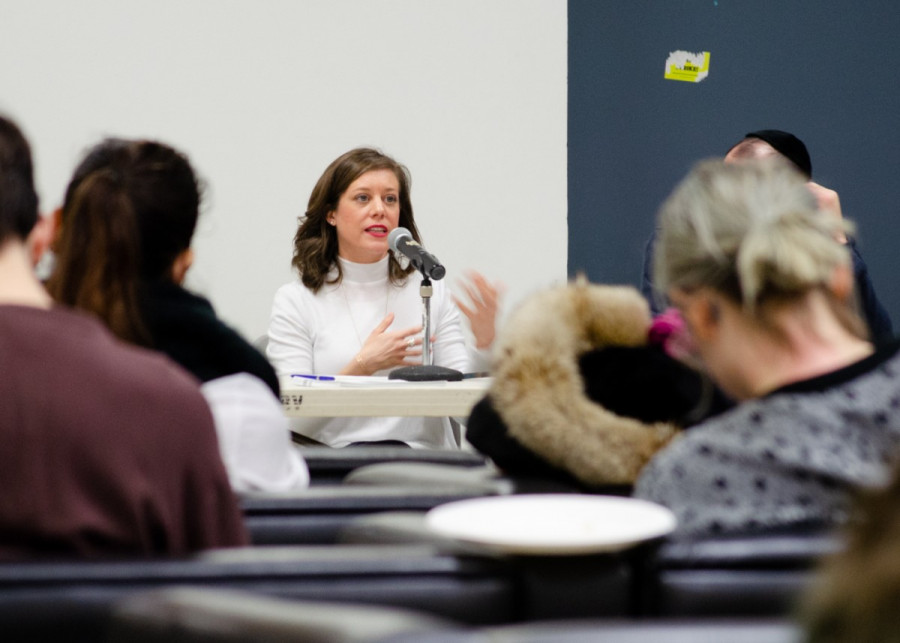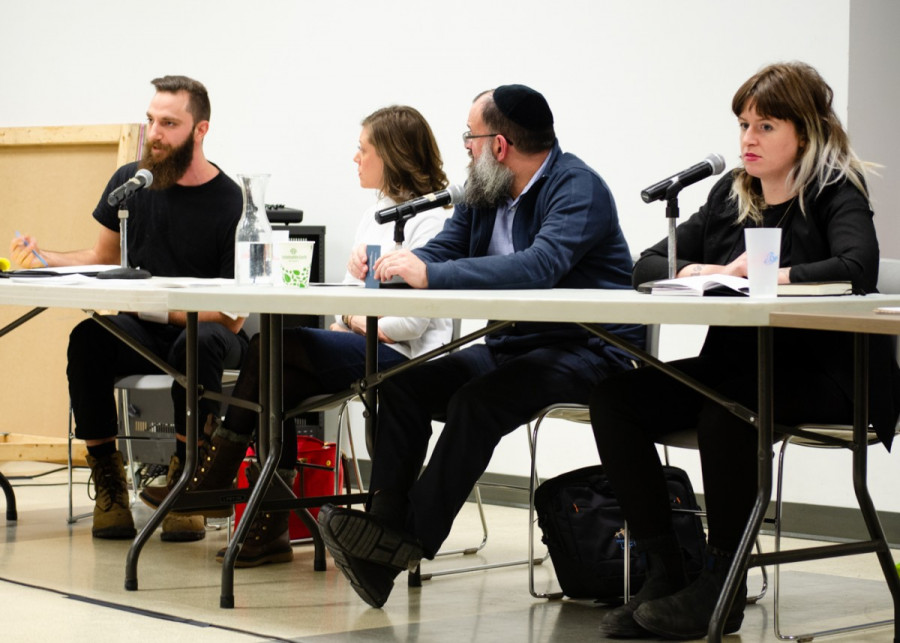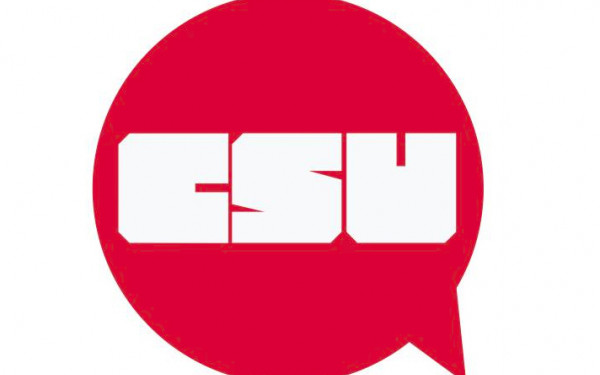Bringing Addiction to the Forefront of Campus Conversations
CSU Talk on Addiction Kick Starts Initiatives Support Those in Recovery
The Concordia Student Union is hoping to bring a better conversation of addiction on campus.
A recent panel inviting those who take part in recovery or addiction services to share their journey or advice, allowed a chance for the Concordia community to better understand addiction.
The CSU has recently launched a Students in Recovery Task Force, which will invite those in recovery or have loved ones in recovery to critique research the CSU has conducted on services towards those with addictions and make suggestions to what could be beneficial services offered to these students.
CSU student life coordinator Michèle Sandiford, who recently celebrated two years of sobriety, said that when she came to Concordia she didn’t notice any services available to students in recovery, apart from the Counselling and Psychological Services and the Access Centre.

This semester, Sandiford hopes to generate a better conversation around addiction. Her first initiative was bringing a public conversation with panelists to Concordia students on Jan. 10, a part of the winter orientation week at Concordia.
Concordia’s Wellness Coordinator Jillian Ritchie was introduced, a new position at the university, as Ritchie describes herself as a liaison between students and the university.
Ritchie said she is working to implement a program to guarantee that students have access to mental health services they need.
Joined by three others that are involved in the field of addiction, including Rabbi Benyamin Bresinger, a director at Chabad Lifeline treatment centre, alongside his wife Karen Bresinger. Bresinger has authored a course called Twelve Steps and the Kabbalah, that harmonizes the teachings of Kabbalah with the twelve steps of alcoholics anonymous.
Similar to Bresinger’s non-traditional methods of addressing and treating addiction, former Concordia Graduate Monica Victoria, who is not only involved in the community of recovery, but is also a artist, activist and musician.
“Drugs and alcohol and behaviours that are addictive are the solution, they are not the problem—the problem is what was going inside.”
—Rabbi Benyamin Bresinger
Victoria said she had a difficult time connecting to the religious aspect of alcohol anonymous, urging her to create Radical Sobriety with her friends, a version of narcotics and alcoholics anonymous that is more inclusive of the queer, punk, and anarchist communities.
The final speaker, Yamin Weiss spoke on his experiences as a long time narcotic user now in recovery, who similar to Ritchie, experienced the loss of a partner due to drug use.
“Anyone who tells me that drugs or alcohol are the problem, they’re not getting addiction,” said Bresinger. “Drugs and alcohol and behaviours that are addictive are the solution, they are not the problem—the problem is what was going inside.”
Bersinger said it’s the inner terrain of a person that needs help. There are many that have told him they wouldn’t have made it through their adolescence if it weren’t for drugs and alcohol.

“The more I am aware of the triggers, the more I am aware that the real problem is not outside, it’s inside, [then] the more I’m able to work through those things and in a certain sense,” said Bresinger.
He said those that are able to do so have the ability to become a citizen of the world with a tremendous amount to offer others—spiritually, emotionally and physically.
Weiss said his addiction no longer let his use be a choice for him, it was a dependency, not a moral or behavioural choice.
He said that his recovery became more beneficial when he became surrounded in those who were in recovery and could relate to situations he was in.
“Addiction specifically effects marginalized people much more severely, so that’s based on race, class, gender, citizenship—which is huge,” said Weiss.
“The opiate crisis is a result of overprescription of painkillers, which was a conscious effort by the pharmaceutical industry,” said Weiss. “And it’s suddenly affecting white middle class people so now it’s an epidemic, but drugs have been killing people for a long time.”
Related Reading
Timeline of the Opioid Crisis in Canada
Looking Into the Lifesaving Naloxone
Weiss pointed out the issue of accessibility to naloxone, as those with medicare in Quebec are only able to access naloxone kits from the pharmacy for free.
Ritchie discussed the importance of support for those with loved ones facing addiction, as it is a tough role to have. She suggested places in Montreal where those supporting loved ones dealing with mental illness and addiction can seek help, such as AMI-Quebec, a non-profit organization that she volunteers for, and Chabad Lifeline treatment centre.
For those facing addiction and needing help, services on campus include the Counselling and Psychological Services for emotional support, as well as the Access Centre for academic support.
As there are long wait times to receive counselling at Concordia, there are publicly funded rehabilitation centres offered in Montreal.


_600_832_s.png)


(WEB)_600_375_90_s_c1.jpg)

_600_375_90_s_c1.jpg)